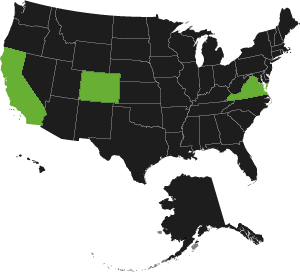Home | Glossary | Resources | Help | Contact Us | Course Map
Archival Notice
This is an archive page that is no longer being updated. It may contain outdated information and links may no longer function as originally intended.
Statutory Purpose
Returning to the concern regarding legal issues, one would think that it means that the FBI and others who utilize CODIS/NDIS only use those means that are explicitly prescribed in their law to support the use of CODIS. However, both the FBI and most states actually have adopted many scientific practices that are not explicitly mentioned in their statutes to support the use of CODIS.16
In this context, those who rely on lack of explicit statutory authorization for familial searching may be confusing the means that are used to achieve the statutory purpose with the explicit statutory purpose—familial DNA searching is just another means to achieve "law enforcement identification." Both California and Colorado implemented familial searching by seeking legislative change. More recently the Virginia Department of Forensic Science reached an identical conclusion when their Attorney General decided that explicit legislative authorization for familial DNA searching was not needed.
16 CODIS has produced many self-imposed practices that are not themselves explicitly authorized by state or federal laws—e.g., number of loci needed to upload a profile, guidelines for uploading mixture profiles and the recommendations from the Scientific Working Group on DNA Analysis Methods Ad Hoc Committee on Partial Matches: SWGDAM Recommendations to the FBI Director on the "Interim Plan for the Release of Information in the Event of a 'Partial Match' at NDIS" are only a few of many such practices that are not explicitly authorized by statute but are routinely utilized in support of CODIS.
Additional Online Courses
- What Every First Responding Officer Should Know About DNA Evidence
- Collecting DNA Evidence at Property Crime Scenes
- DNA – A Prosecutor’s Practice Notebook
- Crime Scene and DNA Basics
- Laboratory Safety Programs
- DNA Amplification
- Population Genetics and Statistics
- Non-STR DNA Markers: SNPs, Y-STRs, LCN and mtDNA
- Firearms Examiner Training
- Forensic DNA Education for Law Enforcement Decisionmakers
- What Every Investigator and Evidence Technician Should Know About DNA Evidence
- Principles of Forensic DNA for Officers of the Court
- Law 101: Legal Guide for the Forensic Expert
- Laboratory Orientation and Testing of Body Fluids and Tissues
- DNA Extraction and Quantitation
- STR Data Analysis and Interpretation
- Communication Skills, Report Writing, and Courtroom Testimony
- Español for Law Enforcement
- Amplified DNA Product Separation for Forensic Analysts


